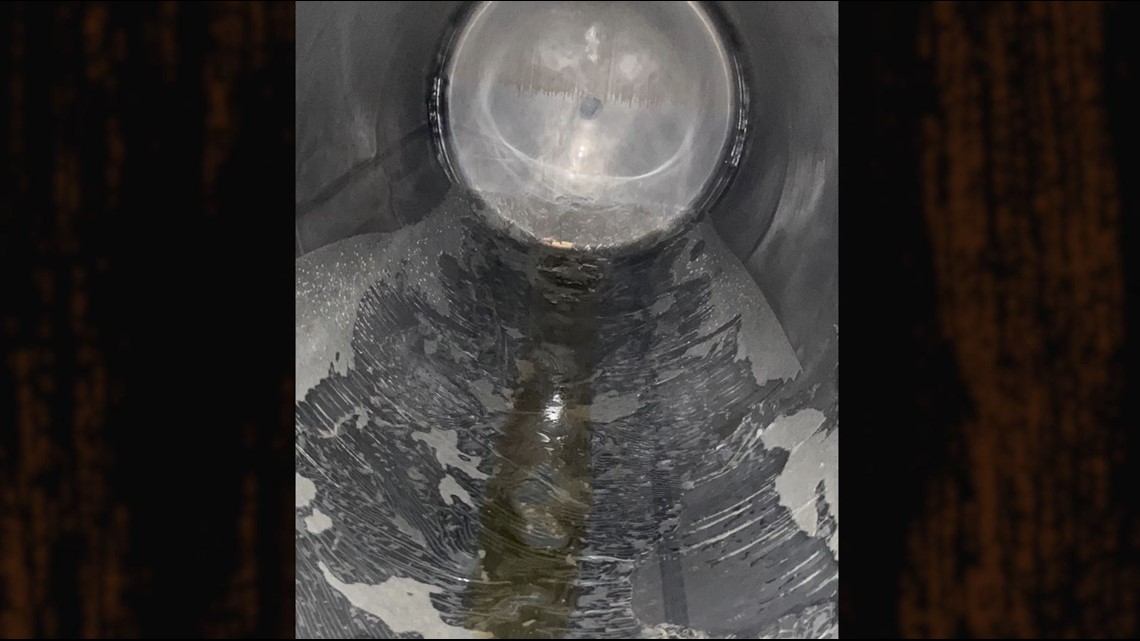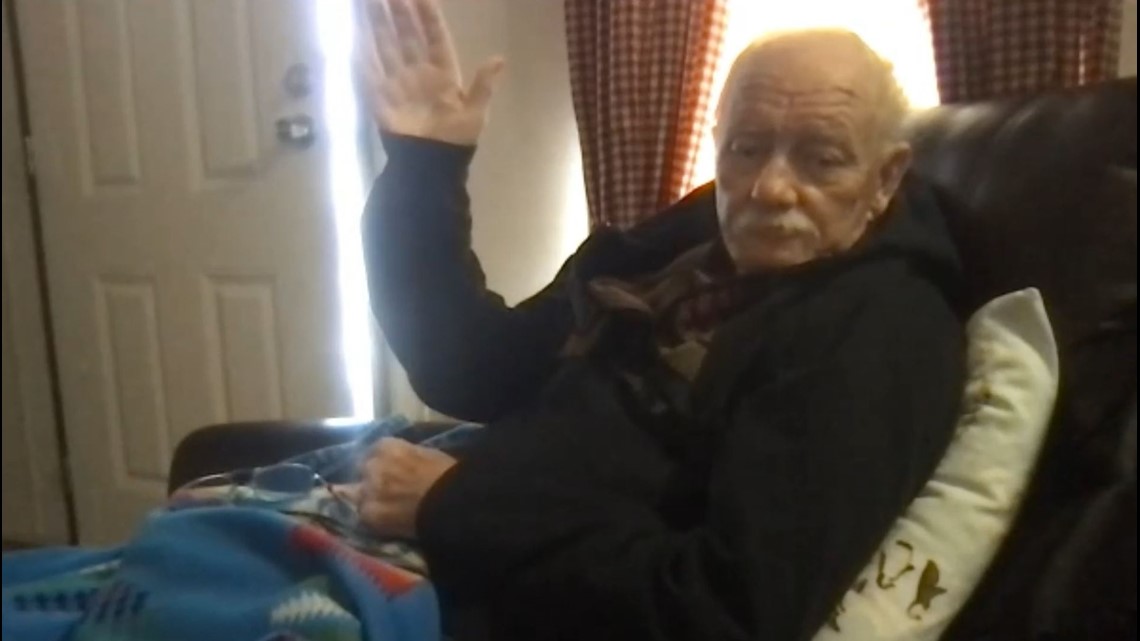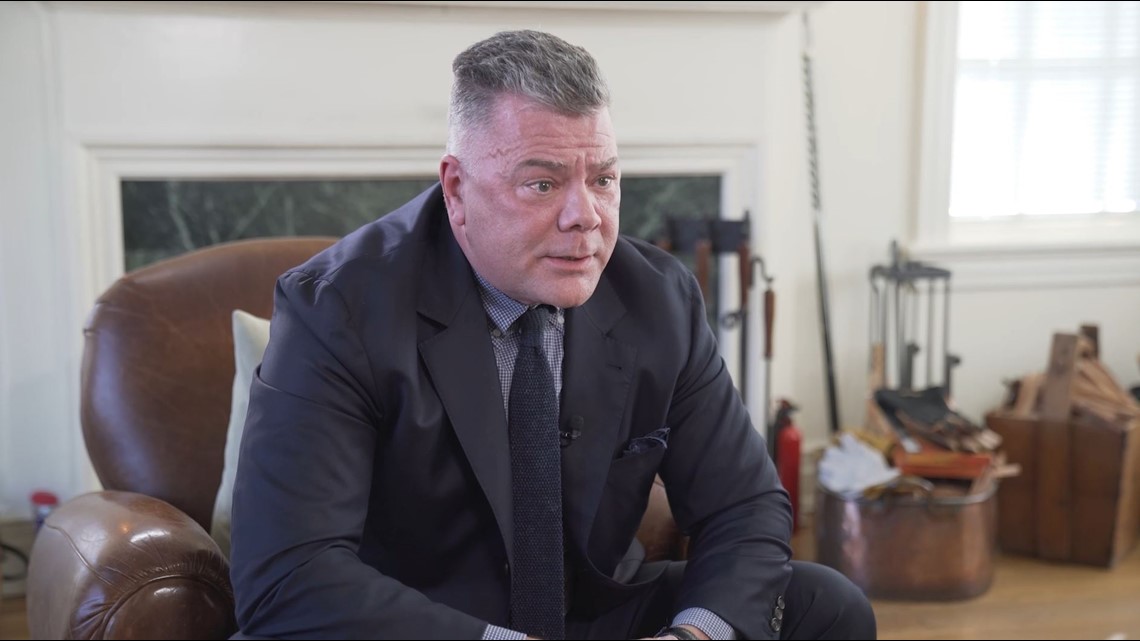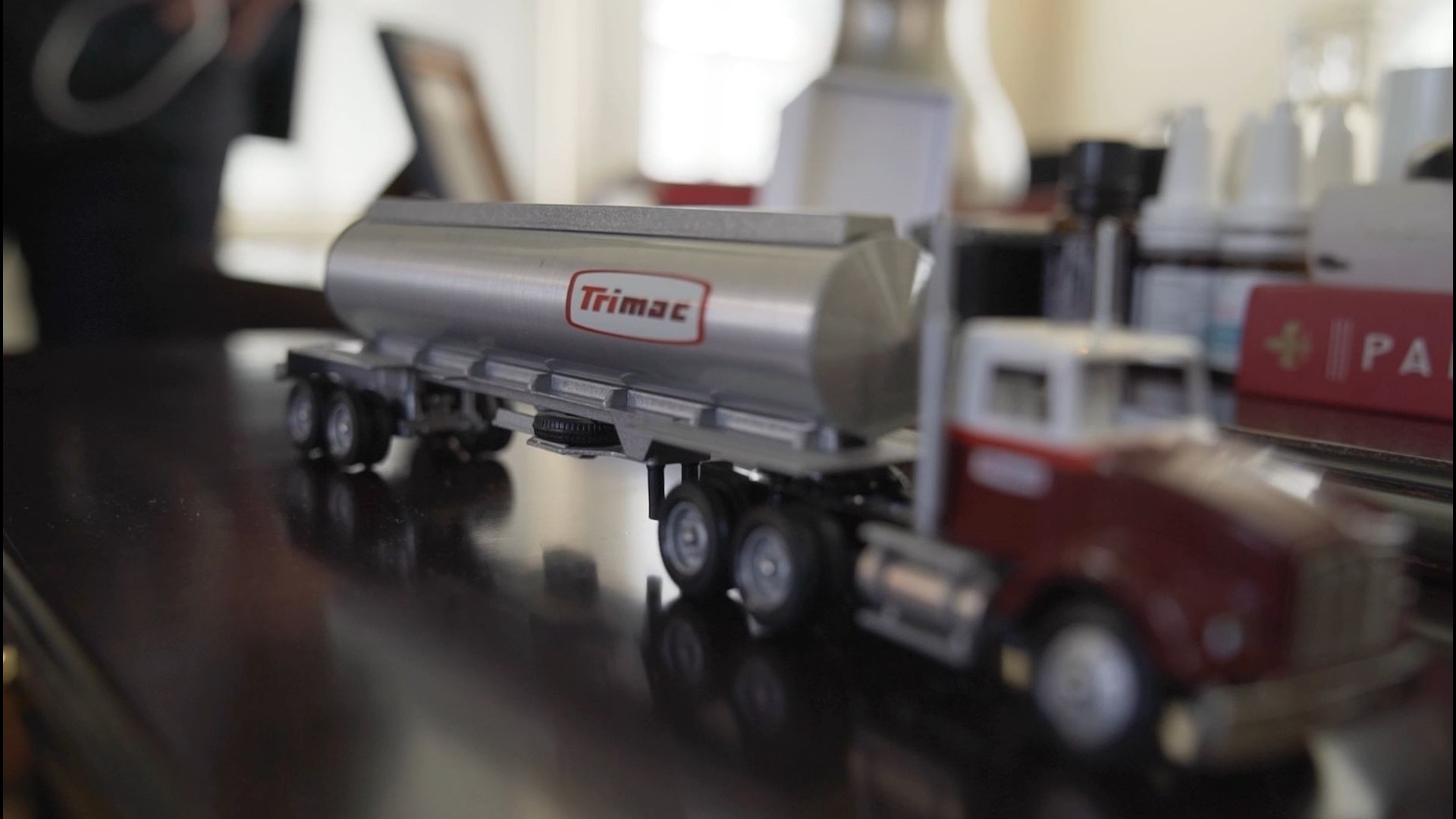ATLANTA — A trial involving a national trucking company is expected to shed light on a job some believe puts workers at risk of exposure to toxic chemicals.
While this week’s case focuses on just one employee, there are multiple pending lawsuits filed in Fulton County involving about a dozen former workers and their families.
The case centers on Trimac Transportation, a company that hauls dangerous chemicals across the country.
Employees claim the company failed to keep them safe by not giving them the required protection equipment and using technology that ultimately gave them a false sense of security.


James Grove is one of those workers. The 71-year-old worked for Trimac in Kansas.
For 12 years, he washed and removed chemicals left inside tanker trucks, often crawling inside to do it at a facility in Kansas. This past March, he participated in an emergency deposition from his bed toward the end of a long battle with lymphoma.


When asked about his prognosis, Grove said his doctor recently told him his time was running out.
“He's saying three to six months if you're lucky,” Grove said.
He died 35 days later.
Grove said he could smell the chemicals left behind as he entered the tanks. He and his family now believe he was not provided the proper protective equipment to keep him safe.
“Just safety glasses and rubber gloves,” Grove said about the type of equipment the company provided him.
Atlanta attorney James Potts represents Grove and other employees who performed similar work at a Trimac facility in Fairburn, Georgia. All of them claim chemical exposure cleaning tanker trucks made them sick.
“They're in there for hours at a time and again they do that five days a week, 52 weeks a year now for 10, 13, 16 years. I mean, it's killing people,” Potts said.


According to the lawsuit, Trimac used electronic sensors to ensure the air was safe to breathe before and while they were inside the tankers.
The device is a Ventis Pro Sensor. It’s worn by employees or can be dropped in a tank to check air quality. If it detects dangerous conditions, it should make a high-pitched alarm. Attorneys for the workers said they believe Trimac used this sensor because they saw devices while conducting inspections of its metro Atlanta facilities earlier this year.
11Alive asked Georgia Tech chemistry professor Pamela Pollet to experiment to mimic work conditions inside tankers using the same make and model monitors Trimac used to test the air. Pollet is also a paid expert witness for former employees.
To do it, she placed a badge inside a glass case used to detect TDI, or Toluene diisocyanate, a cancer-causing toxin used to make plastics. It’s a chemical Trimac workers said they often removed inside tanker trucks.
She then placed a small amount of TDI in the enclosed glass case. The badge quickly turns red, indicating high levels of the chemical in the air.
>> Click the photo above for a closer look at the Ventis Pro Sensor
Pollet then placed the Ventis Pro Sensor into the same case. Thirty minutes later, the devices never went off - the sensor wasn't designed to detect the chemical.
It’s designed to monitor oxygen levels. “They were exposed to high concentrations in confined spaces for a very long time,” Pollet said.
Trimac declined interview requests for this story. It denies any wrongdoing in response to the employees’ lawsuit.
A letter to employees notifying them about the lawsuit said, “the health and safety of our employees and community are paramount.”
Grove’s family believes the company failed to protect him. “Just want to be with the family one more day. That’s all I can do,” Grove said before his death.

